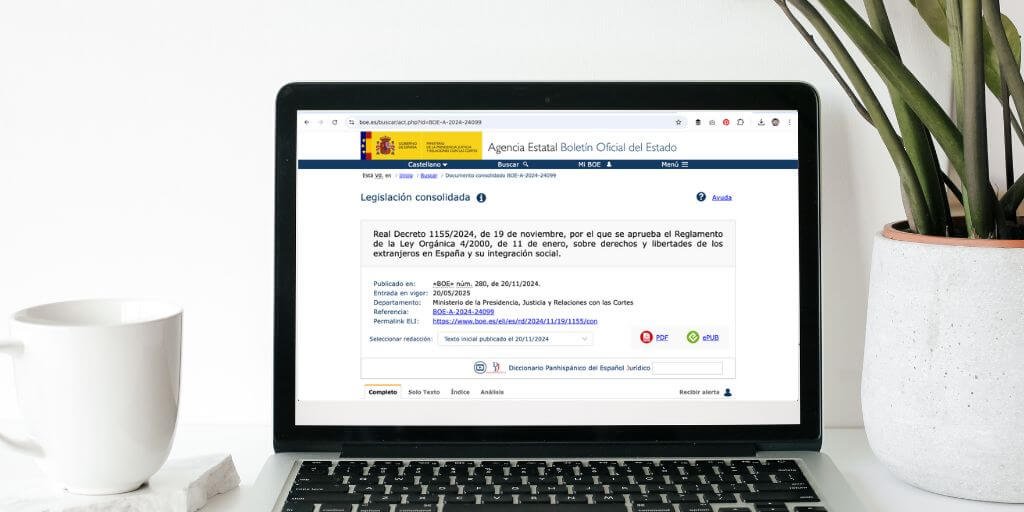The Royal Decree 1155/2024 brings important modifications to the immigration regulations in Spain, replacing Royal Decree 557/2011. These changes reflect an effort to simplify processes, protect vulnerable groups and align immigration policies with European Union regulations. Below, we explain the most important points in a clear and simple manner.
Simplification and Digitization of Procedures
The new regulation eliminates unnecessary steps in the management of permits and visasThe company has been able to reduce processing times considerably. In addition, digitalization is one of the priorities: electronic records are implemented to facilitate communication between agencies and avoid administrative errors. This means that applicants will have faster and more transparent processes.
More Visa Options
The new regulations include an exclusive section for visas, facilitating their understanding and processing. Among the new features are:
- Visa for seeking employmentDesigned for those who wish to look for a job in Spain before formalizing a job offer.
- Long-term visa for study purposesFocused on international students seeking to pursue full degrees or postgraduate studies in Spain.
These new categories broaden the possibilities for legal entry into the country and make migration more accessible to specific profiles.
Regularization and New Rooting Figures
Arraigo continues to be a key tool for the regularization of foreigners, but now includes important innovations:
- Second chance rootsAllows those who have lost their residency to regain their legal status under certain conditions.
- Reduced dwell timesThe minimum time required to obtain social or labor roots is reduced, making regularization more accessible to those who have been in Spain for less time.
This facilitates the integration of those already established in the country, promoting a faster and more effective regularization.
Greater Protection for Vulnerable Groups
The new regulation strengthens the protection of people at risk, such as:
- Foreign women victims of gender violenceThey are granted temporary residence and work permits so that they can rebuild their lives without fear of reprisals.
- Victims of human traffickingThey receive specific support that allows them to obtain legal residency and access to social resources.
These measures reflect a commitment to human rights and the well-being of the most vulnerable groups.
Temporary Jobs: A New Legal Framework
For the first time, a specific regulation is established for seasonal workers, guaranteeing:
- Clear labor rights.
- Possibility of permit extensions.
- Flexibility to change employer in justified cases.
This change benefits both workers and employers, promoting a fairer and safer work environment.
Changes in Asylum Regularization
An important aspect to take into account is that the new regulation eliminates the possibility of counting the waiting time for the asylum resolution to apply for an arraigo. This means that those who wish to regularize their situation will have to opt for other ways, such as the new visas or the aforementioned forms of arraigo.
Key Dates
Royal Decree 1155/2024 enters into force on May 20, 2025, six months after its official publication. It is important that those interested in immigration procedures are informed and adapt to the new requirements before that date.
Conclusion: A Modernized and Efficient Framework
This new regulation is a step forward towards a more modern, efficient migration policy in line with today's needs. While it introduces exciting opportunities, it also requires that migrants have a good understanding of the regulations in order to take advantage of them properly.
Do you have questions about how these changes affect you or need help with your paperwork? We are here to help, contact us!

Partner Attorney.
Specialized in Immigration Law and New Technologies.

